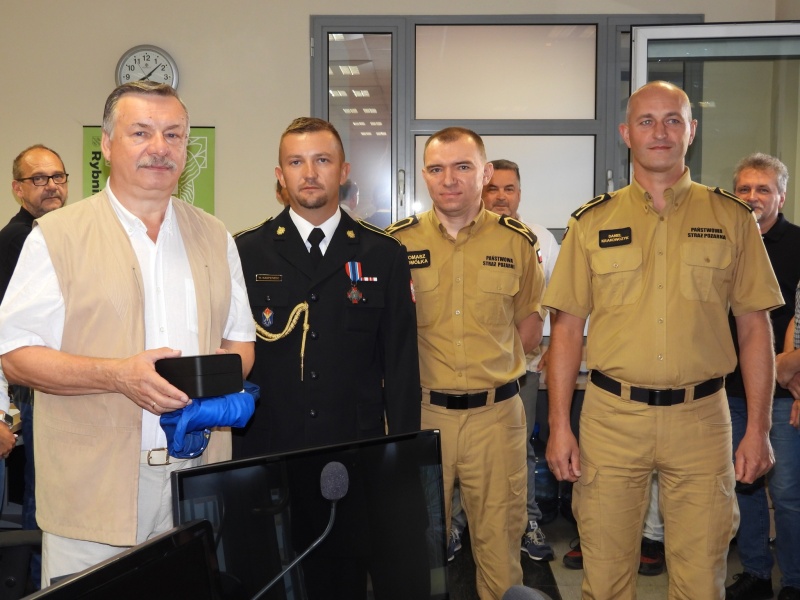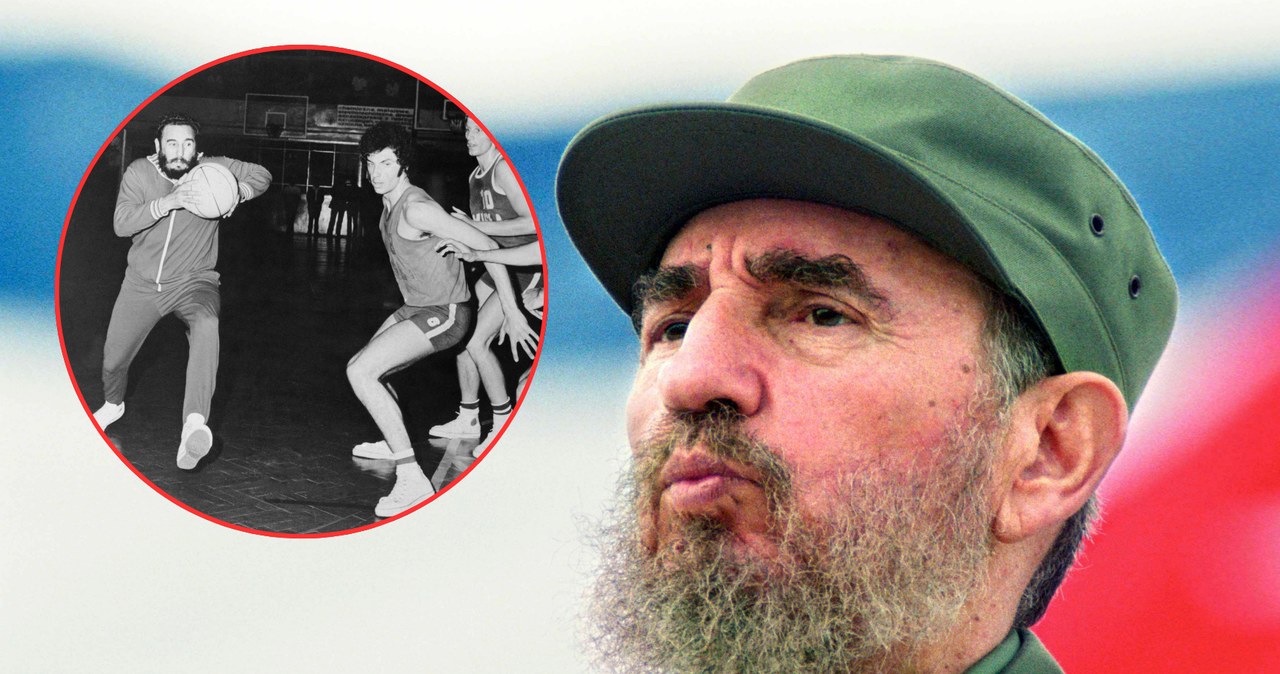Krystian Kamiński on X.
Last week, there was information about the formation of a group of EU countries proposing a change of policy towards Syria. abroad ministers of Austria, Croatia, Cyprus, the Czech Republic, Greece, Italy, Slovakia and Slovenia have made a letter to the EU advanced typical for abroad Affairs and safety Policy Josepa Borella.
At a press conference on 22 July, Borrell replied to the question about the initiative of 8 associate States: “We have listened to these associate States represented by Italy and Austria and the work will continue. Being pragmatic, but not naive. We know where the Syrian government is, very close to Russia and Iran. But we'll work. We are always ready to work to effort to find a solution that could benefit the Syrian people." It's a very average reaction.
Italy's abroad minister Antonio Tajani was very right to complain about the fact that the situation in Syria had actually fallen from the position of European politicians and the debate of European societies. While Syria remained at the centre of attention a decade ago, present it is simply a subject marginalized by the war in Ukraine, the war in the Gaza Strip or the situation around Taiwan. Meanwhile, the war in Syria remains the most bloody armed conflict of Eurasia in the 21st century. It cost 500-600 1000 people, at least half of whom are civilians. Syria is the key country of the Levant, the gateway between the mediate East and Anatolia and Europe.
Under the authority of the Baas and Hafiz al-Assad Party, Syria has become a permanent, inalienable component of the region's policy, and sometimes wider global relations. This was peculiarly evident from the example of Lebanon, where without the Syrians it would not have been possible to close a bloody, complicated, chaotic civilian war. In a time of “cold war” closer to the USSR, however, al-Assad was able to maneuver – fewer present remember that the Syrians participated in Operation Desert Storm on the side of the Americans in 1991. However, as early as 2003, the business of Iraq by Americans and attempts at socio-political engineering on their part provoked strong opposition in Damascus.
Syria has besides become under the authority of al-Asada seniora a unchangeable state in the management of the right mediate East ethno-religious mosaic, absolutely stifling extremist Sunni Islamism, guaranteeing spiritual freedom for local Christians, as under the conditions of the region not poor, in addition to al-Asada junior's rule, in the first decade of the 21st century experiencing fast economical growth. In 2010, Syria recorded economical growth of 11% and then came the "Arab Spring". She was rapidly taken over by external players who saw an chance for a "change of regime" in Syria.
Let us compose this clearly – the conflict in Syria would never have taken the form of specified a gargantuan bloody war if it had not been for external players' interference. The formed anti-government armed groups received support from Saudi Arabia, the United arabian Emirates, Qatar, Turkey, USA, France, large Britain, including jihadists from the region and beyond, Having respect to the function played by extremists from Chechnya or Uzbekistan in the activities of the alleged ‘Islamic State’, the fluctuated people released from Saudi prisons with the proposition of travelling to Syrian jihad, streams of private money from the Vikable Cresus. The U.S. alone spent over a billion dollars to arm anti-government groups in Syria. They besides trained respective 1000 militants in Jordan.
However, even before the end of the last decade, thanks to the armed support of Iran and its regional allies, primarily Lebanese Hezbollah, and since 2015, thanks to Russia's air intervention, al-Assad has managed to tip the scales of triumph in his favor.
Outside the belt of the northern border controlled by the Turks, an area not controlled by the Syrian authorities remains, a desert mostly northeastern part of the state territory, behind the Euphrates. There is simply a parastate of local Kurds, whose operation is guaranteed by the US protectorate. As part of this parastate, the Anarcho-Socialist Kurdish Democratic Union organization (PYD) is trying to keep power over the arabian majority, in addition, on this distant interior, surviving mostly according to patriarchal tribal-clan rules. They are radically contrasting with the left-feminist ideology of PYD and do not, in my opinion, bode the stableness of this political project.
The Americans are inactive stationed in this part of Syria, guaranteeing the existence of these Kurdish structures. They extract Syrian oil, whose deposits are in the state of Dajr az-Zaur, for their benefit. They are besides stationed at at-Tanf on the Jordan border, where they block the main bus connecting the capital of Syria to Iraqi Baghdad. However, al-Assad controls 70% of the state's territory, including its capital, coast, and most of the state's population. There's no indication that this is going to change.
In keeping with the change in the situation in Syria, the authors of the letter, which became the reason for these considerations, indicated that the political situation had changed since 2017, the last paper defining the EU's strategy towards this country. The erstwhile strategy adopted by the Council of the European Union on 3 April 2017 assumed the end of the war by the general transit of power and the establishment of the principles of liberal democracy – it was in fact a repetition of the objectives of the West that guided his political, material and operational support for the rebels... which had long since burned down and were abandoned, while Europe is inactive in the railways of the same old diplomacy. Diplomacy that has failed.
Bashar al-Assad remains president of Syria. In the parliamentary election of 15 July, the ruling Syria since 1963, the Baas organization placed 169 out of 250 seats in the parliament, and 16 cast its alliance parties. Taking into account authoritative independent candidates, the composition of the Syrian National Assembly will be almost identical to the erstwhile word of office. Words frequently service as a diplomat to conceal the truth, as Talleyrand noted, and more or little so in this case. erstwhile the heads of diplomacy of 8 EU countries compose that the "political situation" has changed, this means that it has not just changed in the Western direction expected by the powers and it is time to reconcile with the realities. In fact, the erstwhile arabian enemies of al-Assad have already done so – everyone but Qatar renewed relations with Syria, which was besides reinstated in the rights of a associate of the League of arabian States last year.
Actually, it can be said that compared to the starting point of 2011, this situation has changed to the detriment of Western countries. Syria has become part of Iran's allies' axis of power in the mediate East, and has besides become a strict ally of Russia, supporting it internationally, including designation of the annexation of Ukraine's territories.
What are the current relations between the European Union and Poland and Syria? It's actually hard to say they be at all. Diplomatic relations have been frozen. In 2012, the EU recognised the Qatar-based National Coalition of the Syrian Revolution and the Opposition Force as representing the “aspiration” of the Syrian people. Belgium, Denmark, France, Spain, the Netherlands, Germany, Norway, Luxembourg, the United Kingdom, Italy did likewise. In fact, after a year, it was known that this Council did not represent anyone in the field, in Syria, and the widely advertised “Free Army of Syria” intended to be its armed arm was a media fiction covering a multitude of cultural and muslim organizations, over time radicalizing. Under this media label, American weapons were placed in the hands of specified "pleasants" as muslim Ahrar asz-Sham or erstwhile Jabhat an-Nusra, for a time the Syrian wing of Al Qaeda. Nota bene mutated remains of both these organizations to this day control the remains of the Syrian state of Idlib, thanks to the military protection of Turkey.
The main nonsubjective outlined in the letter of 8 ministers is to end this policy of isolation and establish direct relations with the Syrian authorities, since the EU and its countries are active against this country, now by providing humanitarian support. As noted in the letter, since the beginning of the crisis 15 years ago, aid worth a full of EUR 33 billion has been paid to Syria. This large sum inactive seems insignificant to the economical and social scale of the ruins of the mediate East state. About 90% of Syrians present live in poorness and 70% require direct humanitarian assistance. As a consequence of war and then sanctions and poorness from homes, about 7.2 million Syrians fled, including about 5 million outside Syria.
The migration crisis that broke out in 2015 was possible, on specified a scale, due to the overthrow of Muammar Gaddafi in Libya and the effort to remove al-Assad in Syria, which active bankruptcy of both states. A unchangeable and economically viable Syria is simply a Europe that needs not only to be the origin and corridor for the migration wave. Economically rehabilitated Syria will besides not be the place of production of narcotic fenetiline, which flows from there to our continent under the name captagon. Politically unchangeable Syria is besides little dirt for terrorism – the emergence of the "califate" of ISIS, which allowed a wave of major terrorist attacks in Europe in the last decade, was besides a consequence of the war I am writing about and the bankruptcy of Syrian state structures in crucial areas beyond Euphrates, where immediately jihadists from Iraq took place and it took 5 years to fight to destruct their territorial power.
It is advanced time we had relations with those who truly regulation Syria. Time for dialog on building regional security, stableness and prosperity. It's time to talk about the reasonableness of sanctions that only plunge millions of people into poorness and desperation without giving them the chance to rebuild their homes, their towns, their country. The second requires the position and action of all European Union countries, against the stubbornness of Americans imposing sanctions on Syrians so extended and severe that they undermine any economical interaction, any chances of economical recovery of the country. The Americans in the second hemisphere do not bear the consequences of their ideological manias or miscalculations of politics, which they have done in the mediate East. Europe carries them. Poland should immediately support the 8 States initiative in the EU arena to make dialog with Syrian authorities and search ways of normalising relations.
RETURN OF SYRIA TO THE EUROPEAN SCENE
Last week, there was information about the formation of a group of EU countries proposing a change of policy towards Syria. The abroad ministers of Austria, Croatia, Cyprus, the Czech Republic, Greece, Italy, Slovakia and Slovenia formulated in this... pic.twitter.com/KgjRxibyYZ

















